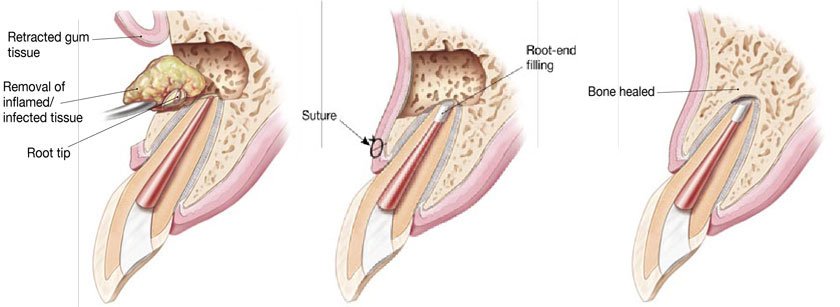Root Canal Treatment
Root Canal Treatment is a common dental procedure, with over 14 million performed annually. It is aimed at saving natural teeth by addressing infections in the pulp caused by factors like trauma or decay. Symptoms of pulp infection include visible tooth damage, facial swelling, temperature sensitivity, and tooth and gum pain. The procedure involves removing infected pulp, cleaning, disinfecting, and sealing the root canal system, with a success rate of around 90%.
Alternatives are considered if a tooth is unsuitable for this treatment. Post-treatment care involves final restoration, often with a custom crown, to protect the tooth. Complications are rare but can be addressed promptly. Costs vary based on factors like damage severity, but in general, Root Canal Treatment is less expensive than tooth removal and replacement.
Root Canal Retreatment
Root Canal Retreatment is a dental procedure performed when a tooth previously treated with Root Canal Treatment exhibits persistent infection, ongoing pain, or disease recurrence. This involves reopening the tooth, examining and cleaning the root canals, and placing a new root canal filling. Our goal is to provide effective and predictable treatment, but if Root Canal Retreatment isn't the best option for a patient, we would recommend alternative treatments.
Apicoectomy Surgery
This surgical procedure involves making an incision to expose the damaged tooth and/or bone, removing the affected area, and placing a root-end filling to prevent re-infection. The gum is then sutured, and natural healing of the bone occurs over the next few months, closely monitored by the dental team. Following surgery, patients may experience discomfort, swelling, and bruising, with specific instructions and medications provided for postoperative care. This treatment is typically recommended when complications persist after Root Canal Treatment and/or Root Canal Retreatment.



